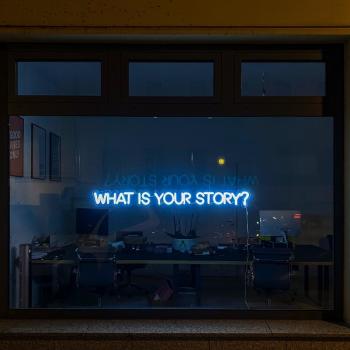Read the previous installments of our interview with Gloria Nelund, reprinted from Ethix:
 Technology Investments?
Technology Investments?
How does the common sense work in today’s more complex world? How would a bank know that investing in Facebook would be a good idea, for example?
I would say investing in technologies is a different thing. Technology investments are completely a venture play. They’re not a commercial-lending play. A small business that has capital flowing, a track record of growth, and a team with success that you can point to, that is where you should use common sense. I don’t think the venture world is where banks should be lending money. That’s for the venture capitalists who want to take that kind of risk and understand the risk they’re taking.
What about a technology company that has been in business for five years, making a profit, and trying to grow. Access to capital for this kind of company, because of the complexity of its products, is difficult to come by.
The closer any business is to consistently repeatable cash flows, which can be managed to maintain profitability and ensure loan repayment, the closer that business is to being a commercial lending play for a financial institution. To the extent that a technology company has these characteristics they would be good loan candidates. The more volatile a business’ cash flows, the less consistently profitable they frequently are. This is often the challenge for many technology companies. That being said, all companies (technology businesses included) would benefit from a more locally focused and less distant banking relationship.
I was recently reminded of the benefits of a locally focused and empowered bank. I grew up in a small town in Ohio where my Dad was an entrepreneur. He always did his banking at one bank. He had seven bank accounts jointly with other people who were not family because he had different businesses. When he died, my mother and I went to the bank to get his accounts changed, and the teller greeted my mother by name and said how sorry she was for my Dad’s death. Then she said, “I’ve already prepared all the documents for you to get everything changed.” My mom signed everything and then the lady at the bank said, “You’ve got these three accounts with other people, two with Clyde, one with John. I wanted to get your signature first to make sure this is how you wanted to do it and then I will talk with Clyde and John. They come in here all the time. I’ll just have them sign when they come in.” Clearly, I was definitely not in California!
Isn’t electronic banking working against that, since many people don’t even go into the bank anymore?
Right, it is more difficult. But even in a big bank there are definitely things you can do to facilitate more of a community sense at a certain level. This is an issue with any big company. The bigger you get, the harder it is to allow that sort of entrepreneurialism, which is needed for business to flourish.
I would love for somebody to do a study on big banks. If you look back 100 years, or at least in my lifetime, you would see cycles. Big banks acquire the little community banks and then there’s this growth of community banks. They get bought up and then you get big banks again. Perhaps in proving what drives these trends we could identify a better strategy.
Let’s pursue the subject of technology a bit more. Technology helps a lot of things, but it can obscure some things as well. It seems to me that a lot of the difficulties in banking came from complex deals that most people didn’t understand, the CDOs for example.
Yes, exactly. The people putting them together don’t understand the boundaries of the application, and many of the people making decisions about them don’t understand how they work. What do you do in an environment with these kinds of complexities that make it difficult to understand a product? You don’t make a decision. My view is if you’re going to accept the responsibility of being a leader then you have to accept the responsibility of understanding what you’re doing. It is not an acceptable excuse to say “I didn’t understand.”
If you don’t understand a deal then you shouldn’t sign it. Leaders have a much bigger responsibility. In accepting their role as a leader, they must know that one of the things that comes with that responsibility is the need to understand.
I sit on a mutual fund board for RS investments, a $22 billion mutual fund company. We have taken the position that we don’t want our fund managers to invest in anything that we can’t understand as a board. By having to explain it to us, we can have confidence that they understand it, and it will likely mean they can explain it to investors. Fortunately, we have a great advisor and our portfolio management teams are terrific. They agree that they shouldn’t be taking on risks that we don’t understand. There are so many new things coming up, and we feel that our job is to protect the shareholders. We need to take that job seriously and understand what’s going on. More boards need to do this, and more management teams need to do this, especially in the investment world.
How widely do you think this practice is followed?
Not very, I’m afraid. I am not naïve.
Are you saying there’s a responsibility for continuous learning on these boards to maintain currency and understand the complexity of the sophisticated instruments?
Definitely. If that had been the case in the past, then many of the deals that got us into the financial crisis would not have been done. I think greed and ignorance both got in the way. In a similar way, more customers should take responsibility for their own financial actions and not do things they don’t understand.
Click on the next page for more of Nelund’s thoughts on what can go wrong with banks!













